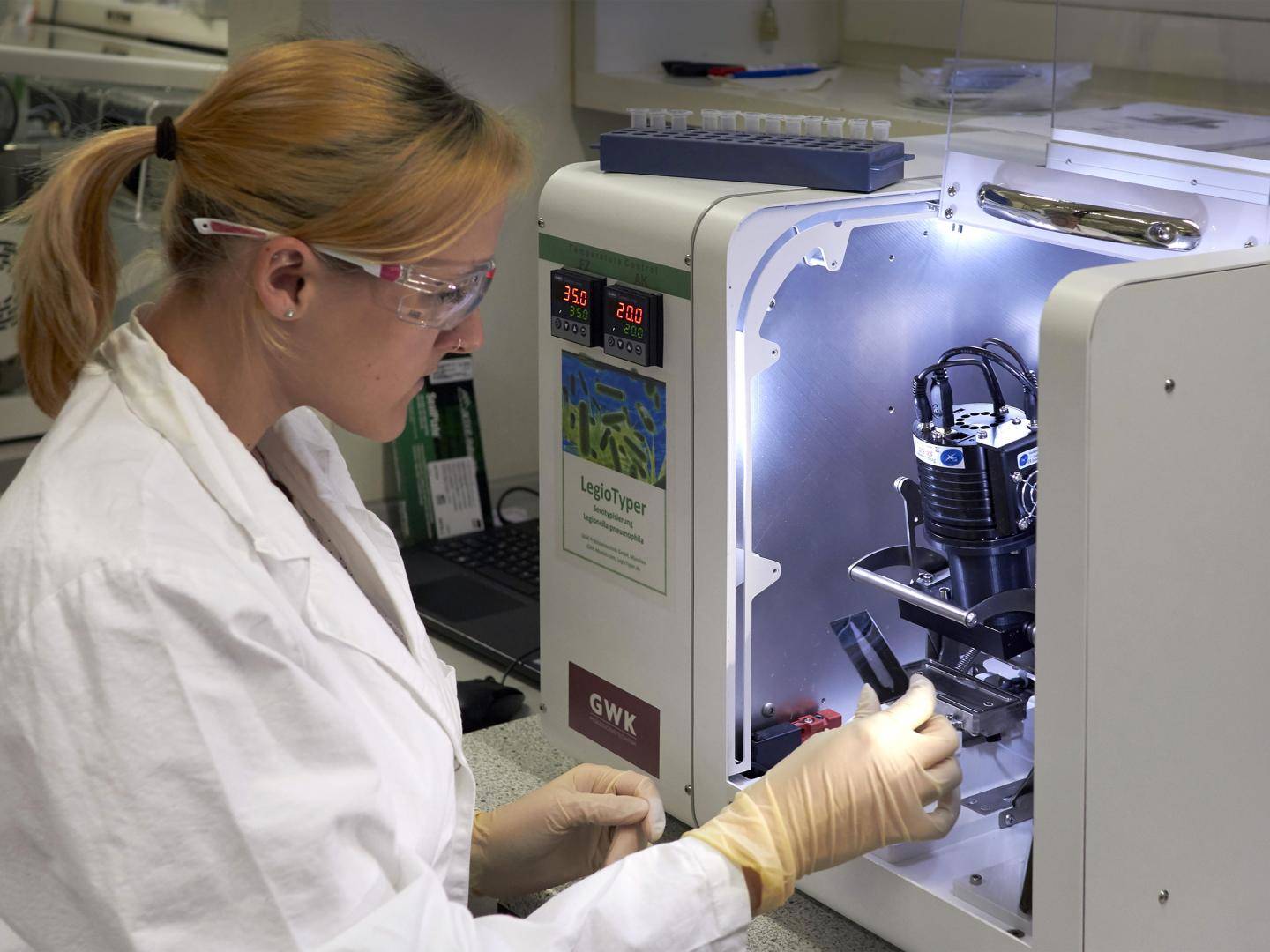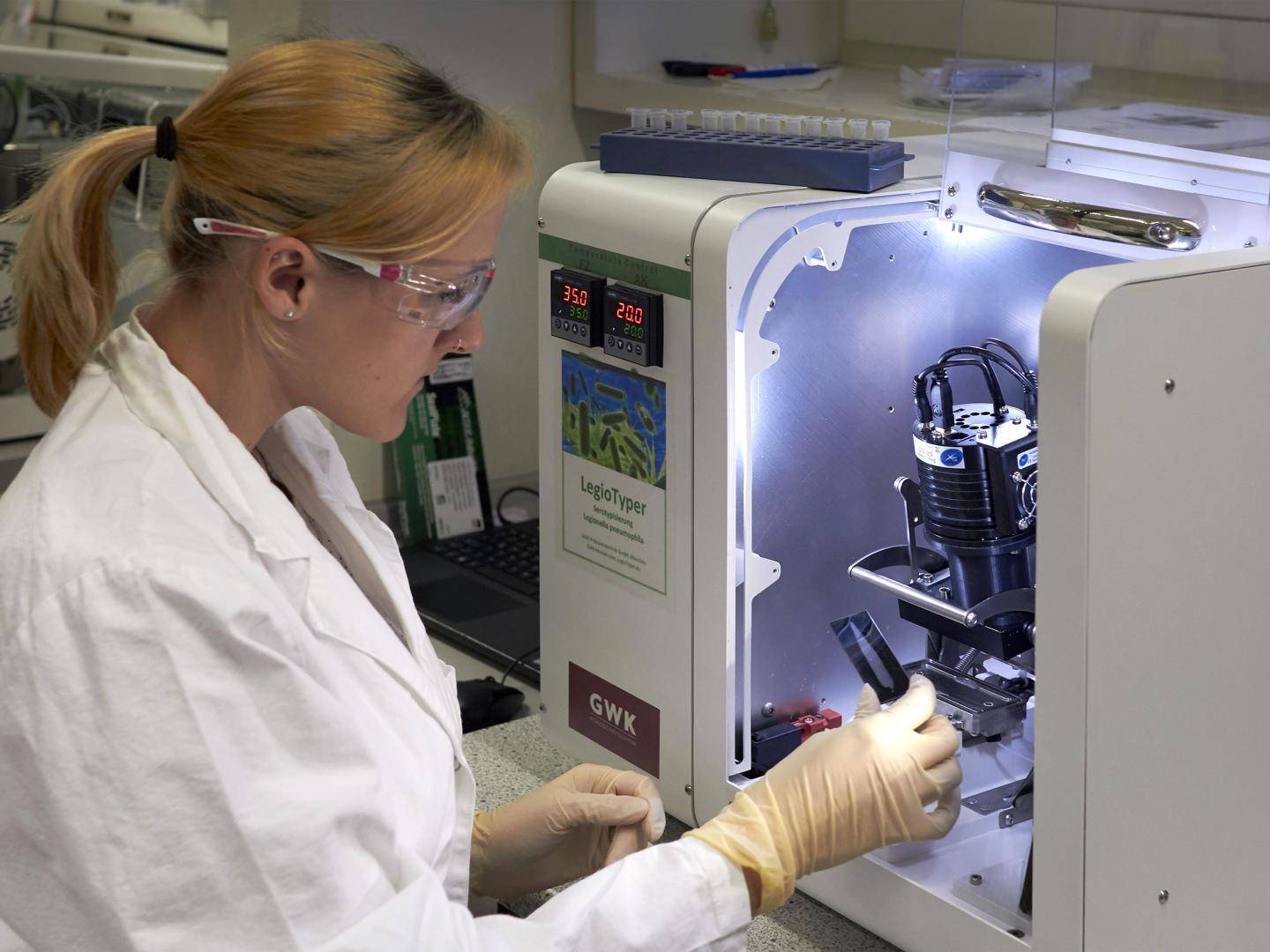
Credit: Jonas Bemetz / TUM
In an outbreak of Legionnaires' disease, finding the exact source as quickly as possible is essential to preventing further infections. To date, a standard analysis takes days. Researchers at the Technical University of Munich have now developed a rapid test that achieves the same result in about 35 minutes.
Legionella are rod-shaped bacteria that can cause life-threatening pneumonia in humans. They multiply in warm water and can be dispersed into the air via cooling towers, evaporative recooling systems and hot water systems.
The most dangerous among the almost 50 species of Legionella is Legionella pneumophila. It is responsible for 80 percent of all infections. When an outbreak occurs, the source of the germs must be identified as soon as possible to prevent further infections.
Similar to a paternity test, the origin of the outbreak is confirmed when the germs in the process water of a technical system exactly match those identified in the patient. However, often numerous systems must be tested in the process, and the requisite cultivation for the test takes around ten days.
Faster detection with antibodies
Meanwhile there is a rapid test for detecting the Legionella pathogen in the clinic. It identifies compounds of Legionella in the urine of patients. "Unfortunately, this quick test serves only as a first indication and is not suitable for screening the water of technical systems," says PD Dr. Michael Seidel, head of the research group at the Chair of Analytical Chemistry and Water Chemistry of the Technical University of Munich.
The team of scientists thus developed a measuring chip in the context of the "LegioTyper" project funded by the German Federal Ministry of Education and Research. This chip not only detects the dangerous pathogen Legionella pneumophila but also identifies which of the approximately 20 subtypes is present.
Fast, inexpensive and versatile
The foil-based measuring chip uses the microarray analysis platform MCR of the Munich company GWK GmbH. Using 20 different antibodies, the system provides a complete analysis within 34 minutes.
"Compared to previous measurements, the new method not only provides a huge speed advantage," says Michael Seidel, "but is also so cheap that we can use the chip in one-time applications."
The system can be deployed for environmental hygiene as well as clinical diagnostics. In combination with a second, DNA-based method, the system can even distinguish between dead and living Legionella pathogens. This allows the success of disinfection measures to be monitored. The project participants will present their system to the public for the first time at the Analytica 2018 trade fair in Munich (Hall 3, Booth 315).
Publication:
Wunderlich, A.; Torggler, C.; Elsaesser, D.; Lück, C.; Niessner, R.; Seidel, M., Rapid quantification method for Legionella pneumophila in surface water. Analytical and Bioanalytical Chemistry 2016, 408(9), 2203-2213 – DOI: 10.1007/s00216-016-9362-x.
Kober, C.; Niessner, R.; Seidel, M. Quantification of viable and non-viable Legionella spp. by heterogeneous asymmetric recombinase polymerase amplification (haRPA) on a flow-based chemiluminescence microarray. Biosensors and Bioelectronics, 2018, 100, 49-55 (This study was made available online in 08/2017 ahead of peer-review and published February 15, 2018.)
More information:
The LegioTyper project is funded by the German Federal Ministry of Education and Research in the context of the "Civil Security – Protection against biological threats and pandemics" program. The antibodies were provided by the German Reference Laboratory for Legionella at the TU Dresden.
The microarray analysis platform MCR of the Munich company GWK GmbH is also used in a test for antibiotic residues in milk developed at the same chair: https://www.tum.de/en/about-tum/news/press-releases/detail/article/31075/
###
Media Contact
Dr. Andreas Battenberg
[email protected]
49-892-891-0510
@TU_Muenchen
http://www.tum.de
Related Journal Article
http://dx.doi.org/10.1016/j.bios.2017.08.053





